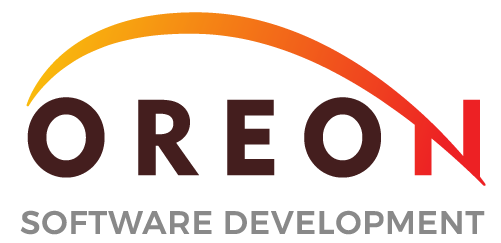OREON’S QUALITY POLICY AND SOFTWARE DEVELOPMENT PROCESS GUIDELINES
Quality Policy
We are engaged in providing high-quality, maintainable and secure-by-nature web solutions and systems. We are eager to surpass customer expectations by using the right people, process, methodology and productivity improvement tool.
Quality Objectives & Initiatives
We strictly adhere to the processes enlisted in the ISO 9001:2015 Quality Management standards definition. The Quality Management Manual is updated regularly to provide the best with the current software development standards.
- We Regularly check designs, source codes, tests and code quality.
- We use Test Driven Development (TDD) to provide the best systems that cover all components with unit tests. We provide main unit tests and integration tests specifications by considering all the possible test cases and conduct testing based on customer’s specifications.
- Provide simulation environment for unit and component tests depending on the project.
- Follow coding rules diligently and strictly adhere to modern code quality standards using Sonarqube and other static analysis tools.
- Oreon aims to manage regular communication with the client to discuss every step and fail/fix early in case of a problem. We strictly document every step throughout the Software development Lifecycle via modern management tools.
- We are endeavouring towards continuously enhancing our software quality and customer satisfaction.
- We vigorously ensure timely completion of projects by adhering to well-defined development methodologies, processes and performance metrics.
- We Deliver services that meet customer’s needs and requirements, furthermore that we are proud to take part.
Software Development Process and Methodologies
Oreon adopts a customer-centric approach based development methodology that guarantees better customer experience concerning the time, cost, and quality. We also provide the appropriate business model such as Offshore, Onsite or a mix of both, that suits best to the customer’s needs and requirements.
Skilled Project Management
We have broad experience in Project Management within international clients and working with a broad range of clients all over the world via different platforms. We have strong onsite and offshore experience and strictly adhere to modern software project management standards.
Oreon’s Software Development Model
We embrace methodologies flexibly based on the requirement of the project and the client’s needs and specs. We generally use Agile and Waterfall development models.
Agile Models (Scrum/SaFE)
- Though there are many agile models but to provide maximum benefits to customers, we mainly favour Scrum and Extreme Programming (XP)
- With Scrum, cross-functional development teams incrementally produce software products in cycles of stages called Sprints. Each Sprint results a usable software. With the completion of each Sprint, the software is ready for a customer demonstration. As Oreon, we highly use SaFe (Scaled Agile ) methodology to gain the best.
- By Extreme Programming (XP), changes in a project can be sleekly streamlined cost-effectively without interrupting the software development lifecycle.
- Depending on the project, we also follow a hybrid model that combines the benefits of XP and SaFE techniques to provide maximum gains associated with the project.
Waterfall Model
Waterfall model is a well-defined model for some projects. Here, development progresses steadily downwards, sequentially completing each phase. The next stage of action starts on the achievement of defined goals of the previous step.
Review Development Process
- Reviewing by walk-through format that is assuming the program flow by visualizing the specifications and finding bugs or loopholes
- Reviewing source code
- Static Code quality checks before each deployment to environments. Low-quality code will fail to deploy to any environment, even to dev and test environments.
- Applying top-down testing for program modules
- Implementing third-party testing
Quality Monitoring Through Constant Review
- Requirement definition review
- Basic design review
- Detailed design review
- Code review
- Test plan review
- Static code analysis and regular checks to strictly comply with best development standards.
- Regular Dynamic code analysis checks
Want To Learn More About Our Services?

